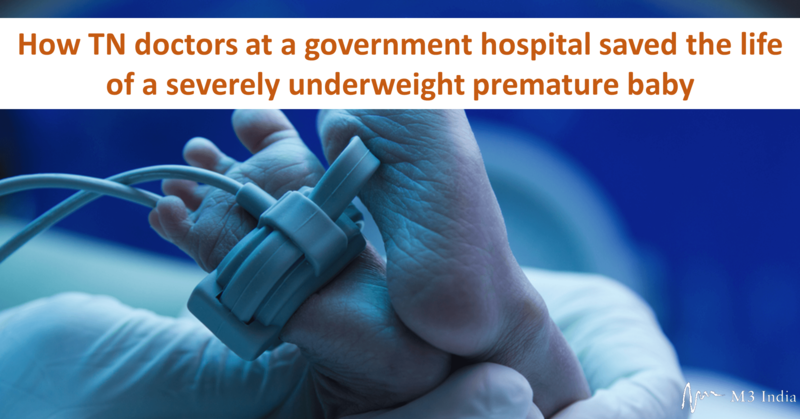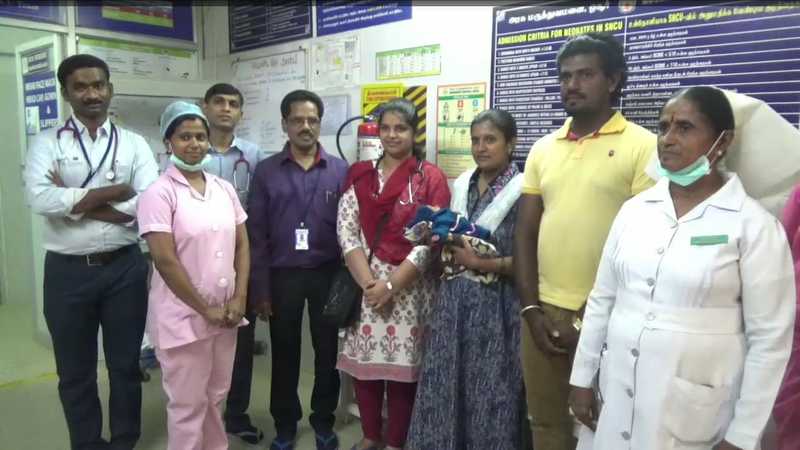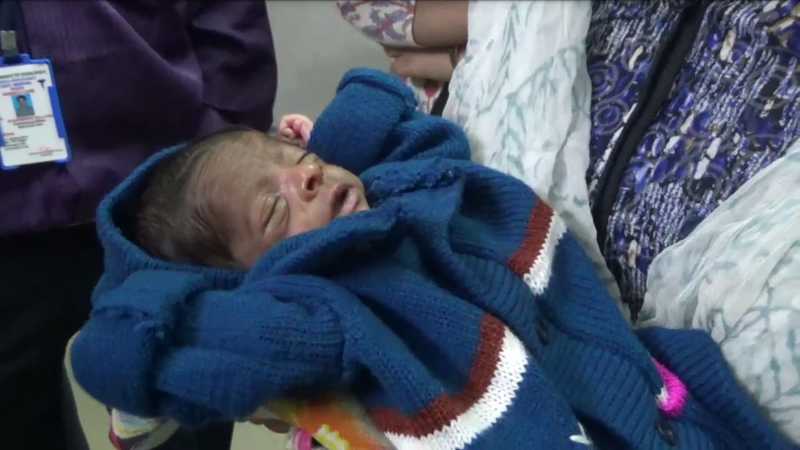How TN doctors & nurses at a government hospital saved the life of a severely underweight premature baby
M3 India Newsdesk Sep 07, 2019
Government hospitals in India generally have a bad rap. But in Tamil Nadu, doctors and nurses in a state healthcare facility worked day and night over 60 days to save the life of a severely under-weight baby girl.

A baby girl, born prematurely to a farmer couple in Krishnagiri district, was deemed too weak to survive in the private facility where she was born. The mother was only seven months pregnant when she complained of severe pain and was admitted to a private hospital in Hosur. When the baby arrived, after a difficult surgery, she weighed just 855 grams (the ideal weight being 3.5 kg). Since the pregnancy hadn't completed its full term, the baby was severely under-developed and wasn't even able to drink mother's milk.

Doctors and nurses with the mother and baby
After a week, with the baby's condition deteriorating, the couple was referred to the government hospital in Hosur, where the team of doctors - lead by Chief Doctor S.Boopathy and paediatricians P.Rajasekar and A.Deepa Arokiam - were able to treat the child over two months and bring up her weight to 1.24 kg.
While elaborating on the treatment, pediatrician D.Shakthivel said, "Two years ago, a couple had given birth to an infant which weighed only 750 grams. With intense care and treatment, the baby had increased weight and became normal. It was based on this experience we had given the treatment to the child that was referred from the private hospital. When the infant was brought to our hospital, the chance of survival was bleak. However, we gave the best of our efforts to revive her to a state of normalcy."
After teetering on the brink of danger for so many days, it was faith that compelled them to continue treating the baby, the doctor said.
"Every other newborn will face difficulty breathing; that is a common phenomenon. Some newborns even forget to breathe. But in the case of malnutrition, breathing becomes even more difficult. This baby was premature by three months and her lungs are not fully formed. Such newborns will be placed in incubators as they are prone to infection too. Here, the body heat of the child is maintained at a constant temperature, which is vital for its survival," he said.
Explaining the slow and careful process of treatment they had undertaken, the doctor says the baby was initially fed with 4 ml of milk with the help of a tube once every few hours. As a few more days passed by, the amount of milk was gradually increased to 25 ml every hour. The mother was finally able to breastfeed the baby normally forty-two days from its date of birth. The baby was shifted from the I.C.U to the normal ward and the hospital staff taught the mother how to feed the child as it was her first time giving birth.

Baby at the time of discharge
During the incubation period, 12-15 ml of blood was transfused to the baby thrice during this period to overcome her lack of immunity. Such babies are more prone to infectious diseases like yellow fever and a high chance of developing low blood sugar levels. To avoid this, the staff had to monitor the baby continually and inspect her vital signs frequently.
Two months after she was first admitted, the doctors started to see positive signs and, once the baby had reached a reasonably healthy weight, she was discharged.
The author, Mydeen Abdul Kathar is a Chennai-based freelance writer and a member of 101Reporters.com, a pan-India network of grassroots reporters.
-
Exclusive Write-ups & Webinars by KOLs
-
Daily Quiz by specialty
-
Paid Market Research Surveys
-
Case discussions, News & Journals' summaries